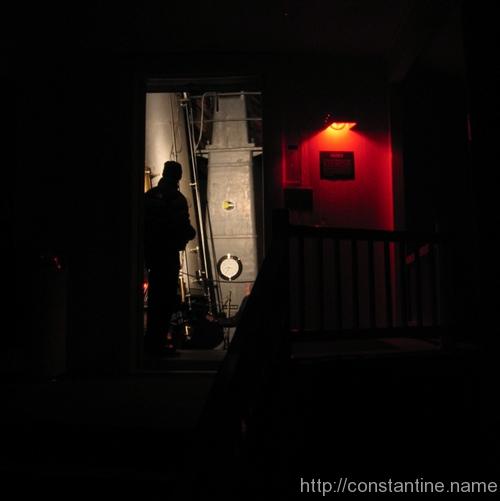The muses were dumb while Apollo lectured.
~ Charles Lamb
slip:4a1479.
The muses were dumb while Apollo lectured.
~ Charles Lamb
slip:4a1479.
A party without a cake is really just a meeting.
~ Julia Child
slip:4a1334.
How she used to smoke in his office, back when the University allowed that in campus buildings. He didn’t smoke, but allowed her to as she sat on the sofa across from his desk. Or rather, he didn’t object, and even set out a little dessert plate as an ashtray. Maybe because it gave them both a pretense for talking longer, for the extra duration of a cigarette, then two, then three. So that by the time she graduated, she was a chain-smoker.
~ Ling Ma from, Office Hours
slip:4utebo3.
Usually I have some observation to make about the things I share herein. I’ll find myself reading something, an interesting idea flits into my belfry, and I’m momentarily enthralled. It’s at that point that I kick that item into my process for coming out, here.
This was different. I stubbornly reread that first sentence arguing internally about grammar— Decided it didn’t matter because I liked the cut of the paragraph overall— And then realized I was half-way through the entire thing—
Sometimes I just share interesting things I find lying about.
ɕ
How do personal experiences and creative approaches in stand-up comedy and podcasting intersect to explore humor and connection?
The conversation explores the transformative power of combining humor and reflection in stand-up comedy and podcasting.
I’m interested in the kind of laugh you do when you look at things in a new way. Like, you pierce through something, and it’s a new thought people connect to and identify with.
~ Abby Wambaugh (17:59)
The discussion touches on the creative intersections between stand-up comedy and podcasting, focusing on personal expression and audience connection. Abby shares her journey of creating a podcast during the pandemic to explore humor’s societal impact and their later transition into stand-up. Through podcasting, she experimented with audio formats and advertising parodies, which helped her embrace spontaneity and humor.
Another key topic is the role of feedback in creative processes. Stand-up is highlighted for its immediate audience response, contrasting with podcasting’s private, controlled creation. Insights into how humor fosters social connection and challenges perspectives underscore the transformative potential of laughter, with a focus on maintaining kindness in comedy.
Takeaways
Creating humor that builds connection — Stand-up and podcasting are tools for fostering understanding through laughter.
Feedback as a guide — Immediate audience reactions in stand-up provide invaluable lessons for refining material.
Laughter as social glue — People laugh significantly more in shared settings, emphasizing its role in connection.
Experimentation in formats — Exploring unconventional formats like parody ads can inspire creativity.
Kindness in comedy — Avoiding divisive humor reflects a commitment to constructive engagement.
Exploration of identity — Stand-up and podcasting can be platforms to navigate and express personal identity.
Private versus public creation — Podcasting offers a reflective space, while stand-up demands immediate public interaction.
Resources
Why We Laugh podcast — Abby’s exploration of humor and its societal purpose.
Transom — A platform for sharing crafted audio pieces.
Sarah Schaefer — Comedian and podcaster known for creative projects like the Ha Ha Hole.
Casper Addyman — Baby laughter scientist studying the social and developmental roles of laughter.
(Written with help from Chat-GPT.)
ɕ
What lessons and insights emerge from the process of podcasting, and how do they shape personal growth and creativity?
Sharing inner strength moments evolves into a profound practice of learning and giving.
It’s a great opportunity to learn, and you do it and you can transfer that to other parts of your life.
~ Lizzie Rhodes James (18:25)
The conversation explores the dynamics of podcasting as a platform for sharing insights, personal growth, and creativity. Themes of learning and gratitude are central as the speaker reflects on their podcasting journey, emphasizing the importance of creating meaningful and timeless content. The discussion also touches on the process of pausing and reevaluating projects, highlighting the cyclical nature of inspiration and effort.
The technical and creative aspects of podcasting are also discussed, including the routines and systems developed to sustain the work. Lizzie shares experiences of integrating podcasting with other writing platforms, like LinkedIn, and the evolving goals tied to their creative output. Personal habits, such as morning productivity routines, play a significant role in supporting this creative process.
Takeaways
The cyclical nature of creativity — Reflecting on when to pause or continue a project.
The value of timeless content — Creating material that resonates across different periods.
The interplay of gratitude and giving — Sharing experiences to support and inspire others.
The technical evolution of podcasting — Learning from tools and systems developed along the way.
The role of habits in creativity — Establishing consistent routines to foster productivity.
The power of short-form content — Crafting concise yet impactful messages.
The importance of reflection — Stepping back to view the broader themes in one’s work.
Learning through doing — Applying podcasting insights to other areas of life.
Resources
Lizzie’s Inner Strength — A short-form podcast exploring personal growth and resilience.
Lizzie Rhodes James on LinkedIn
Stoic Philosophy — Referenced for its enduring relevance to personal growth.
Timeless principles from ancient literature — Encouraged as a source of wisdom over modern business books.
(Written with help from Chat-GPT.)
ɕ
We are always falling in love or quarreling, looking for jobs or fearing to lose them, getting ill and recovering, following public affairs. If we let ourselves, we shall always be waiting for some distraction or other to end before we can really get down to our work. The only people who achieve much are those who want knowledge so badly that they seek it while the conditions are still unfavorable. Favorable conditions never come.
~ C.S. Lewis
slip:4a653.
Listen to some, or all, of Rush’s 1984 live recording from the Grace Under Pressure tour.
ɕ
Continuing my deep dive—hopefully it doesn’t become a drowning—into Knowledge Systems: Yesterday I spent a little time tinkering with Discourse to see what I could do with it. There is a mind-numbing array of tools that could be used, but I keep coming back to the point that I don’t actually understand what I’m trying to build.
I’ve spent significant time thinking about that, and reading about that, but it’s still not clear. It’s like standing in an aisle of tools each shiny and powerful; I know people who have piles of tools. Fortunately, the best way to understand is to build. And so building I am. (Out of sight privately, sorry.)
I seem to recall hearing a metaphor about house building: Start with a sofa in the lawn, add features as needed. Be prepared to knock it down and start again.
ɕ
Over and over, throughout the day, we make the Hundred Little Decisions: to work on this, to check email, to go to this website, to respond to messages, to grab a bite to eat, to meditate or exercise or do yoga or have tea or watch a video or push into deep purpose.
~ Leo Babauta from, Hundred Little Decisions: Training Ourselves at the Decision Point
slip:4uzede3.
As usual, Leo has this boiled down to its essence. I certainly make plenty of bad, in-the-moment decisions. These generally relate to food or entertainment, as escapes from stress and workload—both are entirely self-imposed and positively feedback into each other. I’m convinced that no amount of good intentions, nor mantras, nor little sticky notes, etc. can save me.
My mistakes are made much farther back in time. The mistake is not what I do when I feel frustrated; the mistake was starting the 42nd task during which I became frustrated. The mistake was putting 47 things on my todo list—not literally on paper, but in my set of expectations of myself. When I get to item 41, there’s absolutely not way I’m not going to start on number 42 when I have my eyes on the goal of 47.
I am completely on board with the idea that what one can accomplish in a lifetime is astounding, and that I can get there by simply doing a little bit, (of whatever it is,) each day. I understand that idea, but it appears in action too rarely in my life. I have a nice, sparse, morning routine and each day—more than two hours after I’ve awakened—I get to the point where I “surface.” Where I open up all the communication tools, project management system, notes, everything… and I plan my day.
This is where I fail; around 7:30am. Every day I grab life by the short hair and set out to tackle All The Things allocated for today. Every self-cursed day, I get to the 42nd item and get frustrated, tired, hungry, discouraged or whatever.
This problem is not solved with sticky notes at the spots where decisions are made in real time. This problem is solved in my first two hours in the morning… where I should be thinking:
What would a good day look like today?
ɕ
P.S.: I’m adamantly opposed to planning “tomorrow” before going to sleep. The last thing I want to do, at the end of my day, is wade into what tomorrow holds, in the end-of-day, wound down, ready for restorative rest, mode. That’s crazy. It’s also presumptuous about there being a tomorrow into which I will awaken—the last thing I ever want to do is have someone find me dead, and see the stupid crap I was planning to do the next day. The only sane course of action is to wake up, begin the day with a fresh start and see what it holds in store.
No problem can be solved from the same level of consciousness that created it.
~ Albert Einstein
slip:4a3.
Put these together, and you have cause for concern. If you learn about something, and it seems trivial and boring, but lots of other people think it’s interesting and important – well, it could be so far beneath you that you’d internalized all its lessons already. Or it could be so far beyond you that you’re not even thinking on the same level as the people who talk about it.
~ Scott Alexander from, Concept-Shaped Holes Can Be Impossible To Notice
slip:4usaco3.
If there’s one thing that makes my brain lock-up every time, it’s this conundrum.
ɕ
slip:4c2le2a.

Entrance to the Lowell Observatory in Flagstaff Arizona.
ɕ

Finally!
ɕ